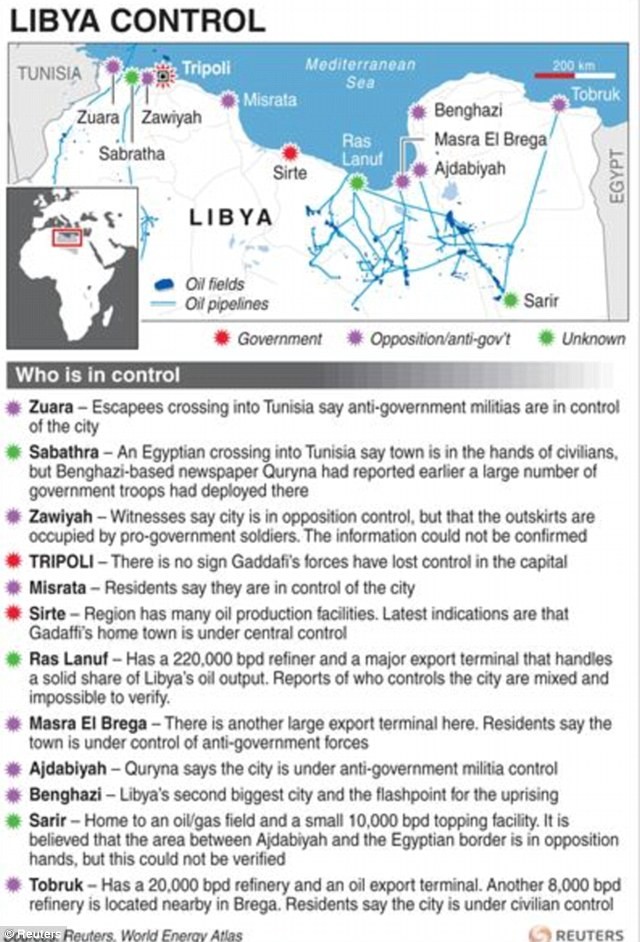Sanctions Between Countries Pack a Bigger Punch Than You Might Think
Post on: 11 Июль, 2015 No Comment

A sanction is a penalty levied on another country, or on individual citizens of another country. It is an instrument of foreign policy and economic pressure that can be described as a sort of carrot-and-stick approach to dealing with international trade and politics.
In March 2014, for example, in response to the Russian annexation of Crimea, the United States and the European Union froze the American and European assets of members of Vladimir Putin’s “inner circle,” which includes politicians, business leaders and one bank. In response, Russia sanctioned several American politicians. including House Speaker John Boehner, Senate Majority Leader Harry Reid, and Arizona Senator John McCain. The impact of Russian sanctions on American politicians was expected to be limited, and was treated humorously: John McCain deadpanned in a March 20th Tweet. I guess this means my spring break in Siberia is off, Gazprom stock is lost & secret bank account in Moscow is frozen.
While the targeted Russians did not all have foreign assets, they faced financial strain. They were unable to carry out dollar-denominated transactions; banks were less willing to help them for fear of angering Western governments; and American businesses weren’t able to work with them. In the long term, however, these sanctions were likely to have less impact than broader sanctions on Russian energy exports to Europe. Roughly 53% of Russia’s gas exports go to the EU, worth an estimated $24 billion a year.
A country has a number of different types of sanctions at its disposal. While some are more widely used than others, the general goal of each is to force a change in behavior.
Sanctions Can Take Many Forms
A sanction can be exercised in several ways. These include:
- Tariffs – Taxes imposed on goods imported from another country.
- Quotas – A limit on how many goods can be either imported from another country or sent to that country.
- Embargoes – A trade restriction that prevents a country from trading with another. For example, a government can prevent its citizens or businesses from providing goods or services to another country.
- Non-Tariff Barriers (NTBs) – These are non-tariff restrictions on imported goods and can include licensing and packaging requirements, product standards and other requirements that are not specifically a tax.
- Asset freezes or seizures – Preventing assets owned by a country or individual from being sold or moved.
Types of Sanctions
Sanctions are categorized in several ways. One way to describe them is by the number of parties issuing the sanction. A unilateral sanction means that a single country is enacting the sanction, while a bilateral sanction means that a group or block of countries is supporting its use. Since bilateral sanctions are enacted by groups of countries, they can be considered less risky because no one country is on the line for the sanction’s result. Unilateral sanctions are more risky, but can be very effective if enacted by an economically powerful country.
Another way of categorizing sanctions is by the types of trade they limit. Export sanctions block goods flowing into a country, while import sanctions block goods leaving the country. The two options are not equal and will result in different economic ramifications. Blocking goods and services from entering a country (an export sanction) generally has a lighter impact than blocking goods or services from that country (an import sanction). Export sanctions can create an incentive to substitute the blocked goods for something else. A case in which an export sanction could work is the blocking of sensitive technological know-how from entering the target country (think advanced weapons). It is harder for the target country to create this sort of good in-house.
Blocking a country’s exports through an import sanction increases the possibility that the target country will experience a substantial economic burden. For example, on July 31, 2013, the U.S. passed the bill H.R. 850. which basically blocked Iran from selling any oil abroad because of its nuclear program. This bill followed a year in which Iran’s oil exports had already been cut in half by international sanctions. If countries don’t import the target country’s products, the target economy can face industry collapse and unemployment, which can put significant political pressure on the government.
Targeted sanctions

While the goals of sanctions are to force a country to alter its behavior, there is much variation as to how the sanctions are leveled and whom they target. Sanctions can target a country as a whole, as in the case of an embargo on a country’s exports (e.g. U.S. sanctions on Cuba). They can target specific industries, such as an embargo on the sale of weapons of petroleum. Since 1979, the United States and European Union have prohibited the import or export of goods and services to Iran.
Sanctions can also target individuals, such as political figures or business leaders — such as the aforementioned E.U. and U.S. sanctions on Putin’s allies in March 2014. Enacting this type of sanction is designed to cause financial difficulties for a small set of individuals rather than impacting a country’s population. This type of sanction strategy is most likely to be used when political and economic power is concentrated in the hands of a relatively small group of individuals who have international financial interests.
A Military Threat Alternative
While countries have used sanctions to coerce or influence the trade policies of others for centuries, trade policy is rarely the sole strategy employed in foreign policy. It can be accompanied by both diplomatic and military actions. A sanction, however, might be a more attractive tool because it imposes an economic cost for a country’s actions rather than a military one. Military conflicts are expensive, resource-intensive, cost lives and can elicit the ire of other nations due to the human suffering caused by violence.
In addition, it is not feasible for a country to react to every political problem with military force. Armies are often not large enough. In addition, some problems are simply not well-suited for armed intervention. Sanctions are generally used when diplomatic efforts have failed.
When Is It Time To Impose Sanctions?
Sanctions may be enacted for several reasons, such as a retaliatory measure for another country’s economic activities. For example, a steel-producing country might use a sanction if another country tries to protect a nascent steel industry by putting an import quota on foreign steel. Sanctions may also be used as a softer tool, especially as a deterrent to human rights abuses (e.g. the U.S. sanctions against apartheid-era South Africa). The United Nations might condone the use of bilateral sanctions against a country if it perpetrates human rights abuses, or if it breaks resolutions regarding nuclear weapons.
Sometimes the threat of a sanction is enough to alter the target country’s policies. A threat implies that the country issuing the threat is willing to go through economic hardship to punish the target country if change does not occur. The cost of the threat is less than that of military intervention, but it still carries economic weight. For example, in 2013 Zimbabwe’s President Robert Mugabe and his inner circle were sanctioned by the U.S. because of alleged rights abuses.
At times, a country may consider exercising a sanction for domestic reasons rather than international ones. Sometimes nationalism comes into play, and one country’s government can use a sanction as a way to demonstrate resolve or to create a distraction from domestic trouble. Because of this problem, international organizations such as the World Trade Organization (WTO) seek to relieve some of the pressure and create panels to objectively review disputes between countries. This is especially helpful in staving off bigger problems down the road, because sanctions can lead to economically damaging trade wars that can spill over into countries uninvolved in the original dispute.
The extent of economic suffering caused by a sanction is often not immediately known. Research has shown that the severity of the economic impact on the target country increases as the level of international cooperation and coordination in its creation increases. It also will be more pronounced if the countries involved in the sanction previously had close relations, since trading ties are more likely to be significant if the countries have a rapport.
Impact of a Sanction
The immediate impact of an import sanction on the target country is that the country’s exports are not purchased abroad. Depending on the target country’s economic reliance on the exported good or service, this could have a crippling effect. The sanction might cause the sort of political and economic instability that results in a more totalitarian regime, or it can create a failed state due to a power vacuum. The target country’s suffering is ultimately borne by its citizens, who in times of crisis may solidify the regime in charge rather than overthrow it. A crippled country can be a breeding ground for extremism, which is a scenario that the initiating country would probably prefer not to deal with.
Sanctions may follow the law of unintended consequences. For example, the Organization of Arab Petroleum-Exporting Countries (OAPEC ) issued an embargo on oil shipments to the United States in 1973 as a punishment for re-supplying Israel with arms. OAPEC was using the embargo as a tool of foreign policy, but the effects spilled over and exacerbated the worldwide stock market crash of 1973-74. The inflow of capital from higher oil prices resulted in an arms race in Middle Eastern countries — a destabilizing problem — and did not result in the policy change envisioned by OAPEC. In addition, many embargoed countries cut back on oil consumption and required more efficient use of petroleum products, further cutting demand.
Sanctions can increase costs to consumers and businesses in the countries that issue them, because the target country is unable to purchase goods, resulting in economic loss through unemployment, as well as production loss. In addition, the issuing country will reduce the choice of goods and services that domestic consumers have, and may increase the cost of doing business for companies that must look elsewhere for supplies. If a sanction is made unilaterally, the target country can use a third-party country to circumvent the effect of blocked imports or exports.
The Bottom Line
The success of sanctions varies in accordance with how many parties are involved. Bilateral sanctions are more effective than unilateral sanctions, but the success rate in general is fairly low. In many circumstances, the sanctions caused economic harm without changing the target country’s policies. Sanctions are ultimately blunt tools of foreign policy, because their deployment is rarely precise enough to affect only the target economy, and because they presuppose that economic harm will lead to the sort of political pressure that will benefit the instigating country.














